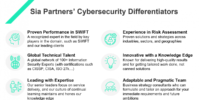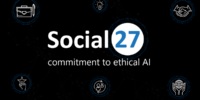As technology continues to advance, IT professionals find themselves at the forefront of ethical considerations. Navigating ethical dilemmas in the rapidly evolving landscape of information technology is crucial for maintaining trust and integrity. In this exploration of IT Ethics 101, we’ll delve into quick tips to guide IT professionals through ethical challenges and foster a responsible tech culture.
1. Prioritize User Privacy and Data Security
Respecting user privacy and ensuring the security of sensitive data should be paramount. Be transparent about data collection practices, obtain informed consent, and implement robust security measures to safeguard user information.
2. Stay Informed About Legal and Regulatory Frameworks
Keep abreast of the legal and regulatory landscape governing IT. Understanding the rules and compliance standards relevant to your industry helps you make ethically sound decisions and avoid legal pitfalls.
3. Practice Full Disclosure in Communication
Communicate openly and honestly about the capabilities and limitations of technology. Avoid exaggerations or omissions that could mislead stakeholders. Full disclosure fosters trust among users, clients, and colleagues. ️
4. Promote Inclusivity and Diversity
Foster a workplace culture that values diversity and inclusivity. Embrace different perspectives and ensure that technology is developed and deployed in a way that benefits all members of society, regardless of background or identity.
5. Evaluate the Impact on Society
Consider the broader societal impact of your IT projects. Assess how technology implementations may affect different communities, and strive to minimize negative consequences. Aim for solutions that contribute positively to society.
6. Avoid Bias in AI and Algorithms
Be vigilant about bias in artificial intelligence (AI) algorithms. Regularly audit and refine algorithms to mitigate biases that could perpetuate discrimination. Strive for fairness and equity in all aspects of algorithmic decision-making. ⚖️
7. Resist Unethical Pressure from Stakeholders
If faced with pressure to compromise ethical standards from stakeholders, maintain your commitment to ethical practices. Advocate for ethical decision-making and, if necessary, escalate concerns to higher authorities. ️
8. Continuous Professional Development
Stay updated on ethical considerations within the IT field. Engage in continuous professional development to deepen your understanding of emerging ethical challenges and refine your ethical decision-making skills.
9. Encourage a Whistleblower-Friendly Culture
Foster a culture that encourages whistleblowing in cases of unethical behavior. Create channels for reporting ethical concerns, and ensure that individuals who speak up are protected from retaliation.
10. Ethical Considerations in Emerging Technologies
As technology evolves, ethical considerations in emerging fields like artificial intelligence, blockchain, and biotechnology become increasingly important. Stay informed about the unique ethical challenges posed by these technologies and adapt your practices accordingly.
Conclusion
Navigating ethical dilemmas in IT involves prioritizing user privacy and data security, staying informed about legal frameworks, practicing full disclosure, promoting inclusivity, evaluating societal impact, avoiding bias in AI, resisting unethical pressure, continuous professional development, encouraging whistleblowing, and considering ethical aspects in emerging technologies. By adhering to these quick tips, IT professionals can contribute to a responsible tech culture and build trust in the ever-evolving world of information technology. Happy navigating!








